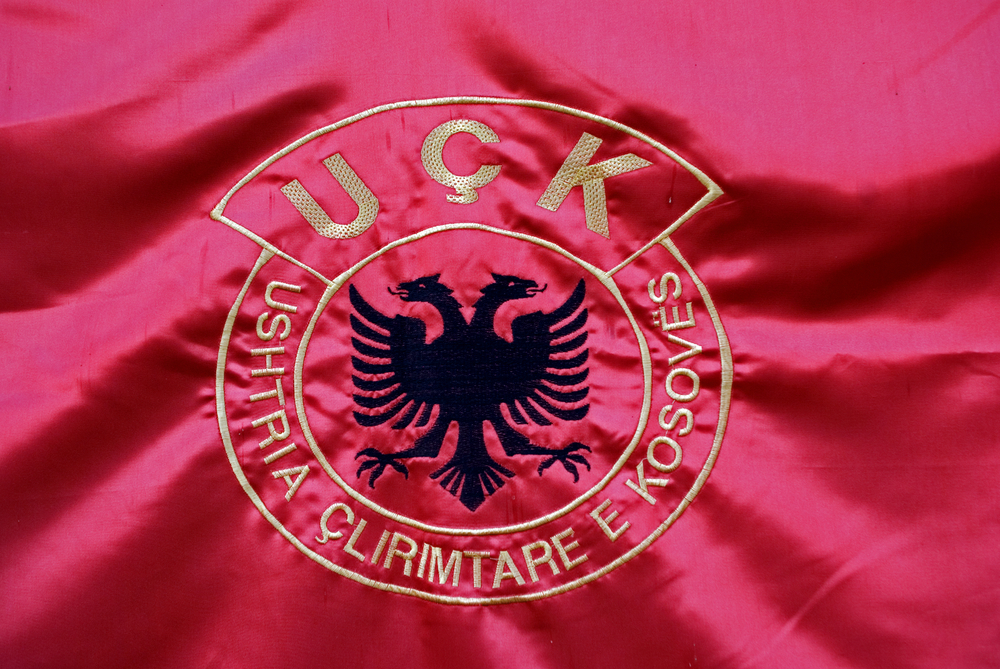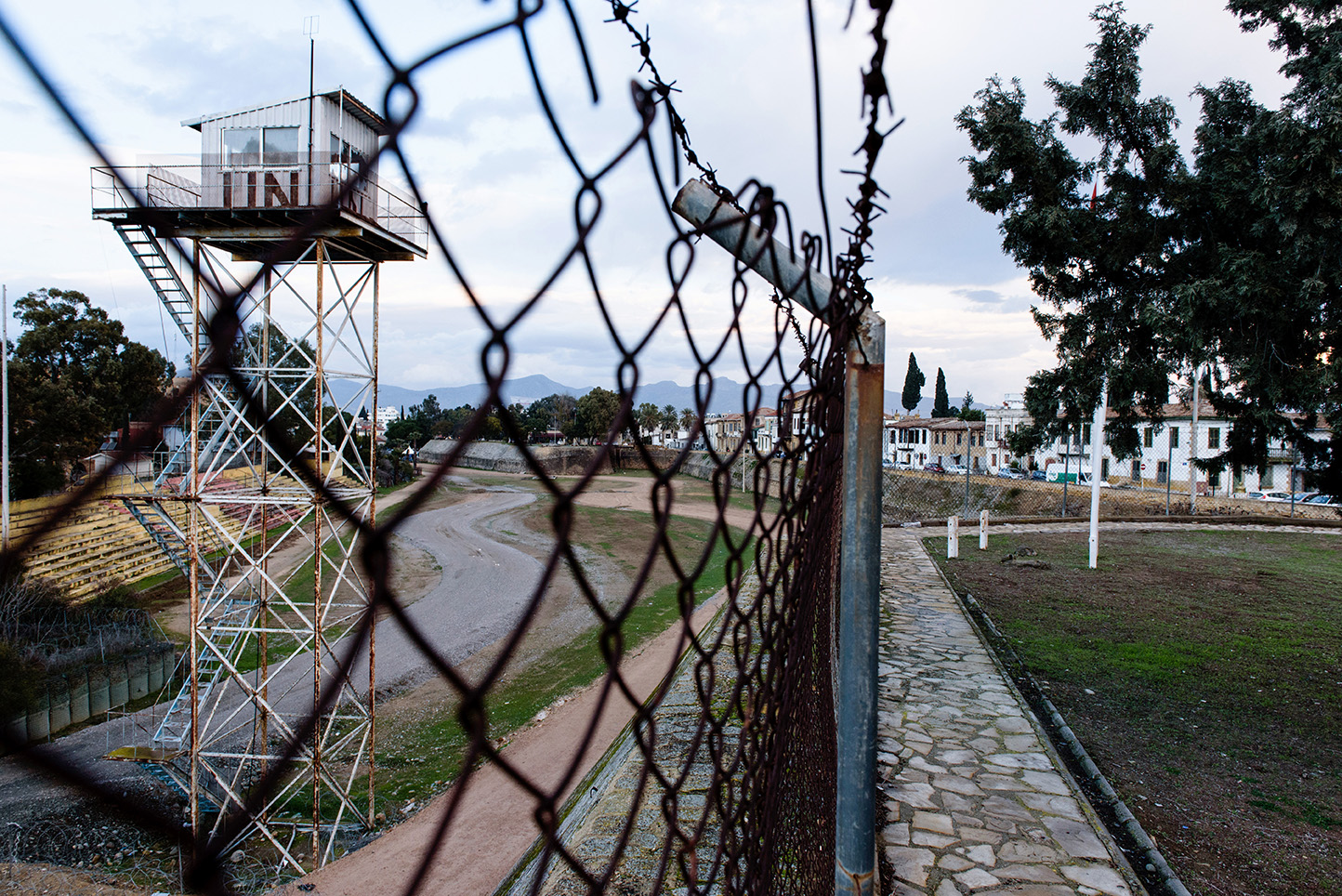KLA trial: verdict nears
According to the timeline provided by official sources, the judiciary is expected to rule on the case of Hashim Thaçi and his three co-defendants in the spring or early summer of 2026. An overview of a controversial trial with potentially strong repercussions for Kosovo and beyond

shutterstock_205844206
UÇK flag - © Attila JANDI/Shutterstock
The defense team of the former president of Kosovo, Hashim Thaçi, and three co-defendants who are accused of war crimes and are currently being held in prison in the Hague, has another month to finish the presentation of the case.
Led by well-known lawyer Luka Misetic, the defense team in Thaci’s case is bringing high officials of former US administrations and other important international institutions to court to testify in favour of Hashim Thaci who, together with Kadri Veseli, Rexhep Selimi and Jakup Krasniqi, is being accused of committing war crimes in the time of war in Kosovo, particularly between May 1998 and September 1999.
In their days long testimonies, the defense witnesses are saying that Kosovo’s former president, in the role of KLA Political Director during the war, did not have all the powers to control every aspect of KLA.
According to the official timeline and based on the number of witnesses the Defense teams plan to call in court (13), it is expected that spring or early summer 2026 will be the time when the judiciary decides on the case, said the spokesperson of Kosovo Specialist Chamber, Michael Doyle, for OBCT.
In an electronic response, Doyle explained that after the filing of the final trial briefs, which is expected to happen in late December of 2025, the judges will schedule closing statements where the prosecution, the victim’s counsel, and the defense team will present their final arguments.
“Then, the Trial Panel will close the case and enter into deliberations to reach a judgment. The trial judgement will be rendered within 90 or 150 days from the closing statements,” continued Doyle.
While sources close to Thaçi’s defense team told OBCT that they are unhappy with the very short time available, it seems that within these two months, the other side of the story about KLA commanders and the prominent figures of Kosovo politics after the war will be presented.
Some see this as a defense strategy to protect Thaçi and others from being sentenced in a trial that, as the defense team portrays it, can be used as a weapon not only against individuals such as Thaci and others but also against Kosovo’s statehood.
Hashim Thaçi, Kadri Veseli, Rexhep Selimi and Jakup Krasniqi are charged with crimes against humanity under international law. Hashim Thaçi aka Gjarperi (snake) is described as the founding member of KLA and KLA Central or General Staff throughout all 1998 and into 1999.
The court is investigating whether Thaci, Veseli, Selimi and Krasniqi were members of a criminal enterprise aiming to exercise control over Kosovo and committed crimes against ethnic minorities and political rivals from the Lidhja Demokratike e Kosoves (LDK) party, then led by Ibrahim Rugova. “This common purpose encompassed the crimes of persecution, imprisonment, illegal or arbitrary arrest and detention, other inhumane acts, cruel treatment, torture, murder, and enforced disappearance of persons,” reads the indictment.
The first witness to testify in favor of Hashim Thaçi in The Hague was James Rubin, who served as U.S. Assistant Secretary of State for Public Affairs in the Clinton Administration. He was considered the right-hand of the State Secretary Madeleine Albright. Rubin presented himself as a U.S. diplomat who initially knew little about the KLA, and his mission was to get to know Hashim Thaçi, who was the leader of the Kosovo Albanian delegation in the Rambouillet conference, in 1999.
During his three days of testimony, Rubin spoke about his personal relationship with Hashim Thaçi, mentioning the time they spent walking and smoking, as well as the more serious developments. For example, he explained that when it came to the discussion of the demilitarization of KLA, Thaçi had to ask the commanders.
“I observed that he deferred to them. When I sought information about how the KLA functioned or when a decision had to be made by the KLA, Hashim Thaçi had to turn to the group of commanders to obtain information, knowledge, and guidance for decision-making. There was also a kind of distance between them, as well as an age difference, the commanders on the field were much older, in that culture, my impression was that he was the one who asked for their opinion, and they were the ones who told him what answers to give,” said Rubin in the court room.
Armend Bekaj, a researcher from the Department of Peace and Conflict Research at Uppsala University in Sweden, sees the testimony of James Rubin and others on the defense team as a turning point in favor of Thaçi. Bekaj highlighted the fact that James Rubin emphasized several times that the KLA was an amorphous organization.
“The witness testimony of the defense, particularly that of James Rubin, has the potential to set the record straight. This is because the KLA was not a regular army; it was an armed guerrilla movement, still in the process of forming, evolving, and organizing,” Bekaj told OBCT.
Bekaj criticized the prosecution for treating the KLA as a regular state army, with a clear hierarchical and command chain, clear protocol rules, and undeniable political decision-making.
“Why the prosecutor does this, I think, is clear: by trying to establish a clear chain of command, the guilt of the accused for war crimes is proven. This is an extremely important discrepancy to highlight,” Bekaj said for OBCT.
Bekaj, who has written about KLA commanders’ legacy and their involvement in politics, said that the KLA had some commanders in the field with a political representative, Adem Demaqi, as ideological leader.
Hashim Thaçi eventually took the title of Political Director, but was not the Commander-in-Chief in the official sense of military ranking, he explained.
Journalists, experts, and politicians criticize the Kosovo Special Chambers for cooperation with Serbia and lack of transparency.
Xhorxhina Bami, a journalist from the Balkan Investigative Reporting Network (BIRN), has followed the trial of Thaçi and others regularly, even though the court and prosecution office are not based in Kosovo but in the Hague.
Bami told OBCT that most prosecution witnesses have been heard in private sessions despite the trial panel having ordered several times to ensure greater publicity for the proceedings.
“The court tries to ensure the safety of protected witnesses after incidents of witness-tampering at other KLA-related trials at the International Criminal Tribunal for former Yugoslavia in The Hague. However, the frequent closed sessions and not having independent monitors in the courtroom does not allow for constant public oversight and reporting,” Bami told OBCT.
This – according to Bami – makes it difficult for independent researchers and journalists to have a full understanding and opinion of the where the case is going, but it also adds to a lack of trust in the trial among people in Kosovo, who already do not trust the court and consider it biased against ethnic Albanians and their just war for liberation.
According to court officials, the Kosovo Special Court is based in the Hague to protect witnesses from harm and fear.
The Kosovo justice system has constantly faced criticism for not being able to protect witnesses. In the first four years since the start of trial against Thaci and others, three individuals from Kosovo have pleaded guilty to intimidation of a witness before KSC, while two others were convicted of witness intimation. In addition, five others including Thaci himself and four members of his former political party PDK are charged with trying to influence witnesses.
“So, the need to protect witnesses from fear and harm and the contribution made by witnesses to justice and the rule of law should not be forgotten,” concluded Michael Doyle for OBCT.
Beyond the lack of transparency, there is another issue for which politicians and civil society participants in Kosovo criticize the Kosovo Special Chamber. In May this year, the trial panel ruled to admit documents issued by Serbian state institutions such as the Ministry of Interior, police, and intelligence services, considering that the origin alone was not a reason to exclude them.
In a public reaction, a group of Kosovo scholars said they considered these documents compromised evidence and not corroborated by witness testimony or other documentary evidence.
“The International Criminal Tribunal for the Former Yugoslavia (ICTY) documented extensive evidence that organs of the Serbian state, such as the Ministry of the Interior and other security mechanisms, were involved in systematic crimes against Kosovo Albanian civilians. The acceptance of documents produced by institutions directly implicated in ethnic cleansing war crimes, disinformation, and the denial of the right of Kosovo to exist as a state challenges public confidence in the integrity of the process at the Kosovo Specialist Chambers,” reads the public reaction.
According to Armend Bekaj, one of the signatories, they expect Kosovo institutions to adopt a proactive stance in this regard.
“We believe that there is room for the above institutions to seek more accountability and transparency from the special court insofar as its procedures are concerned in order to ensure that justice is indeed served,” Bekaj said for OBCT.








